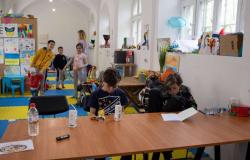In Morocco, Eid El-Kebir (the great festival) is a unique occasion which expresses the unwavering attachment of Moroccans to the Sunnah of the Prophet (Prayers and Salvation be upon Him). But its celebration today has been brought up to date due to the social changes occurring in the country.
Among which, we cite, among others, women’s access to the job market, new lifestyles as well as changes in behavior and mentalities, in addition to the economic constraints posed by this religious festival due to the outbreak of horns. painfully felt by the poorest households.
Surveys reveal, in this regard, that many Moroccans seek to have their sheep at any price, even if it means going into debt or tightening their belts for the most cautious. Others, however, rely on family solidarity or even a bonus from the employer.
It is therefore permissible to ask this question: Has Eid become a social ritual instead of a purely religious festival?
In response to this questioning, Bouchra El Mourabiti, psychosociologist, thinks that Eid El-Kebir, like all other religious rituals in Islam and in all other monotheistic religions, now takes on a social connotation which produces new modes of life and social practices.
She notes that the celebration of this religious festival, especially in the rural regions of the Kingdom, is manifested by different rites, masked parades and carnivals around a mythical character called, depending on the region, Boujeloud (the man with the skins). or Bilmawen. Which traditions are disappearing today, except in small towns, she warns.
Furthermore, she notes that Eid El-Kebir is for artisans and traders as well as Moroccans around the world an opportunity for annual leave, at least 15 days spent entirely with family, very often in “Bled” for some and “Tamazirt” for others.
She also points out that Eid El-Kebir is synonymous with generosity and also represents for some an external sign of wealth, noting, however, that certain criteria linked in particular to the imposing size of the sheep are no longer appropriate due to the evolution of mentalities and the emergence of new lifestyles.
The fact remains that awareness through religious sermons is necessary to convince people of the fact that the performance of this religious rite is optional depending on purchasing power, she recommends, before Add that more and more Moroccans are celebrating this occasion in hotels or even farms to avoid certain inconveniences and unnecessary stress. A change in practices that she explains by the social changes that have occurred in the country.
Other people, for health or other reasons, prefer to offer the sacrificed sheep to the needy or to charitable associations, she indicates, before adding that slaughterhouses are increasingly popular with Moroccans for hygiene and health safety reasons.
That said, Eid El-Kebir remains, despite social changes and new lifestyles, an essential opportunity to strengthen family ties, in addition to promoting solidarity and preserving the centuries-old traditions of the Kingdom.






